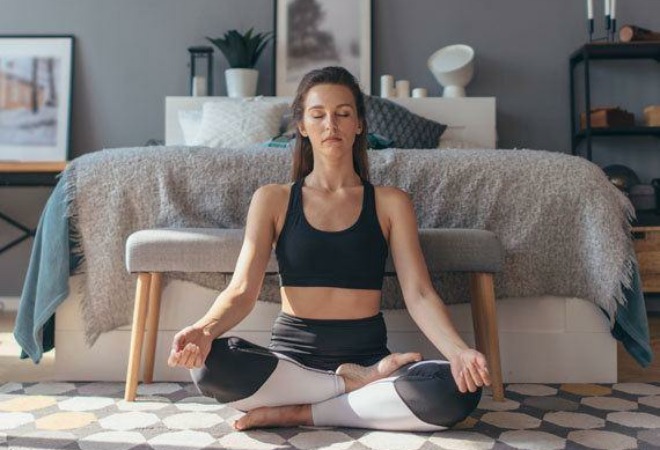Almost daily, we are reminded about the importance of sleep, not just for our health but for our overall well-being. It’s not surprising that one of the key drivers exacerbating insomnia is worry about not sleeping enough.
sleep soundly
Better sleep starts in the day
We spoke to clinical psychologist Dr Kimberly Falconer to understand more about the way our waking hours can affect our sleep and to share some insights into how to achieve a good night’s sleep. With over 10 years’ experience working throughout NZ, the US and the UK, Dr Falconer now works at NZ Respiratory and Sleep Institute in Auckland, specialising in using best practice cognitive behavioural therapy to treat insomnia and other sleep/anxiety disorders.
Sleep soundly
5 Steps to Better Sleep
The anticipation of another sleepless night and the catastrophic thoughts about not being able to function after a rough night’s sleep can haunt us not just at bedtime but also throughout the day. The only thing worse than the frustration of sleep deprivation is the helplesness that occurs when you feel powerless to do anything about it.
Thankfully sleep science has come a considerable way and for many years the gold standard treatment for insomnia has been cognitive behaviour therapy – a structured protocol of steps to change our thoughts and behaviours around sleeping. Stemming from this treatment are five clear steps we can all take immediately, to maximise our chances of a better night’s sleep. Whether you are struggling with chronic insomnia, or just looking to have more restorative sleep, these tips are useful across the board.
BE REGULAR
With an emphasis on the importance of sleep, it makes sense that people look to grab any extra hours they can get, to stock up their sleep bank. Unfortunately, where this means a sleep-in on weekends, or a shifting bedtime through the week, we are hampering our chance of a good night’s sleep by interfering with our natural circadian rhythm. Put simply, our sleep drive relates to the number of hours that have passed since we woke up and where we are shortening this with sleep-ins or early nights, we are compromising the night ahead. Ensure you are going to bed and getting up at the same time every day regardless of what you have scheduled, or how (poorly) you slept the previous night. Even though this can feel difficult at the time, it is worth it to invest in better sleep long-term.
SEE THE LIGHT (AND THE DARK)
It is estimated that our modern environment of artificial lighting and limited sun exposure means we only experience one hour of natural sunlight on average each day. Similarly, evening lighting, screens and devices hinder our exposure to true darkness. Given that the accumulation of our natural melatonin is related to our daily exposure to light and darkness, it is important that we optimise our circadian rhythm and keep it as regular as we can. We can best prepare for the next night first thing in the morning by getting straight into the sunlight (opening curtains, sitting in a sunny spot). Similarly, turning off devices, limiting LED lighting or using screen filters will also best prepare us for sleep at night-time. If you struggle with falling asleep, ensure you are maximising your exposure to sunlight early in the day. Alternatively, if you struggle with middle of the night awakenings try to stay in the light as long as possible, perhaps taking a late afternoon walk and not closing curtains too early.
STAY COOL
Our body temperature has a daily rhythm and helping to keep this regular is important for a good night’s sleep. Getting up and exercising first thing or having a hot shower is ideal to kick-start our increase in temperature. This corresponds to us feeling alert, and building up a good sleep drive for the night ahead. We are at our hottest around 6pm and the corresponding drop after this is what helps us feel sleepy. Our brain and body need to drop their core temperature in order to initiate sleep and most of us fall asleep more easily in a room that is slightly cooler. It’s also important to stay cool overnight as we are typically at our coldest around 4am, which ideally corresponds to us being our most sleepy.
DON’T STAY IN BED
If you haven’t fallen asleep within 20-30 minutes or you have woken up and can’t get back to sleep, it is better to get up and out of your bed than lie there awake. This is because your brain is quick to make an association between your bed and it being a place where you are awake. Go to another room, dim the lights and engage in a quiet activity like reading (no screens, work, food). Once you are feeling sleepy, transition back to bed and try again. Most people don’t enjoy this rule; however if implemented properly it will often be needed only a few times until you have started to re-learn the correct association between bed and sleep. We spend a lot of time helping babies learn to associate bed with sleep and it’s something as adults we unfortunately overlook!
CORRECT THE SLEEP MYTHS
The hallmark of insomnia is negative, inaccurate thoughts about sleep and the consequent worry about not sleeping. Fortunately, decades of research have corrected many of these ‘sleep myths’ and getting our facts right makes a significant difference in reducing our stress and helping us to sleep better. Reminding ourselves we do have a tolerance for sleep loss, can help limit our stress reactions to a period of poor sleep. Our brains are clever and prioritise deep sleep first, even if our sleep is fragmented or we are sleep deprived. Taking the right attitude to bed with you is one of the most effective ways to combat insomnia. Alongside this, managing your stress throughout the day by engaging in regular exercise, yoga or breathing exercises will ensure you are optimally rested when bed-time arrives.




